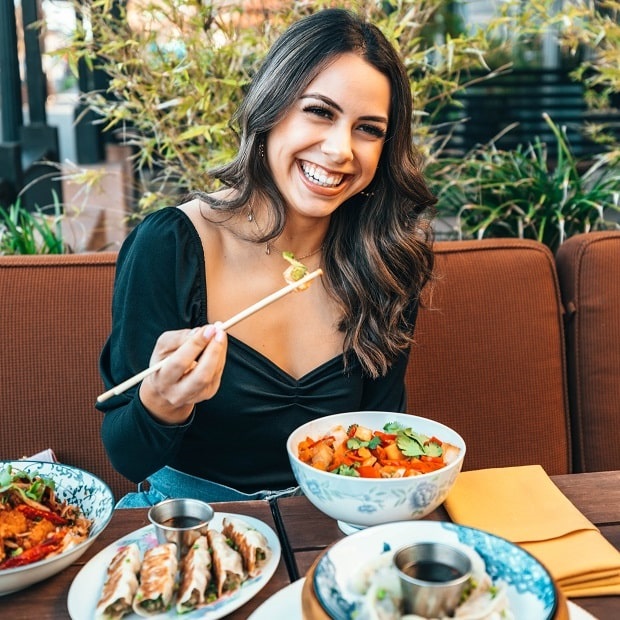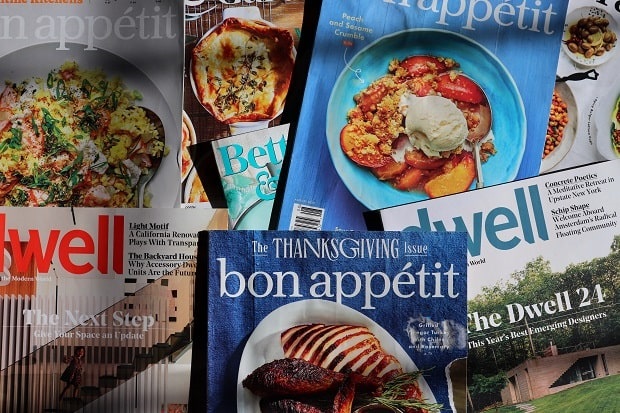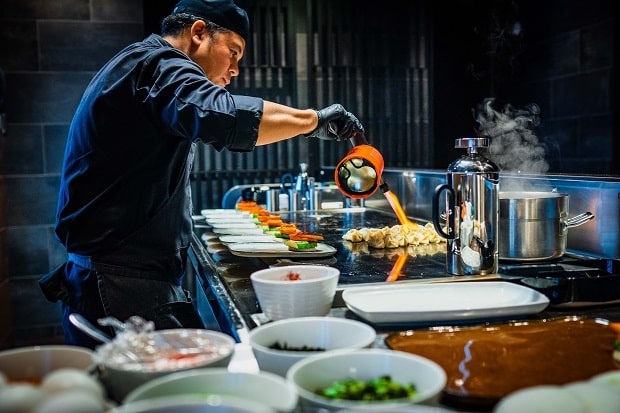
If you’re a rebellious and creative foodie, you might be wondering how to become a freelance food writer.
Being paid to eat great food and write about it?! That’s the dream, right there! If you spend half of your life eating out or cooking, and love writing too, this could be the career for you. Let’s explore some tips on how to get started, and get paid for exploring your cuisine-related fantasies.
Who exactly is a food writer?
If you like the sound of writing about food but don’t know what the job involves, don’t worry. I’ve got you! At its most basic, being a food writer is writing about food (and drink). But wait, there is much more to it. Food writers cover a variety of types, topics, and publications. Let me name a few:
1. Food Critic
This is the most common type of food writer that comes to mind. Food critics eat in restaurants and then write reviews about it. Sounds pretty sweet, right? As a food critic, you can start small. Set up a social media page or blog and start reviewing your local restaurants right away. However, you might realize that you have considerable expenses to think about. That is worth bearing in mind, especially when you are just taking your first steps as a food critic. As your reputation and sphere of influence grow, some restaurants may offer you free meals. However, this might affect your objectivity as you’ll feel indebted to them. You might also get reimbursement for the meals if you can sell your piece to a publication.

2. Food Journalist
Some food writers report on news and events in the food industry. This might be for you if you enjoy keeping up to date on current gastronomic trends. You might write about new restaurant openings, food expos, trending ingredients, or techniques. Whatever exciting events are happening in the world of F&B, you can write about them.
3. Food Historian
You might be the sort of person who enjoys learning about culinary history or the origin of some of the most classic dishes. This can make for an interesting topic, especially if you can relate its impact on current trends. You might also consider writing biographies of legendary chefs, food and drink moguls, or other known personalities in the industry. Interviews with current influencers in the cookery world will also be interesting.
4. Food Marketing
If you have an interest in marketing, you might also consider being in this profession in the F&B industry. Sellers of food and cooking products also use food writers. You might write about the virtues of organic mangoes one day and stick blenders the next. There is no shortage of kitchen products, so start by writing about the ones you love.

What Skills/Qualifications Do I Need?
Since you are reading about how to be a freelance food writer, you might want to know if you have what it takes.
Qualifications
It is common for writing jobs to stipulate candidates should have a bachelor’s degree. A degree in English or journalism can indeed be helpful. But if you don’t have it, don’t let that stop you. If you have significant experience in the food industry, this can help land your first job as a food writer.
Writing Style
More important than a degree is the ability to write a detailed description. The reader needs to feel as if they can also taste what you are tasting as you tell them. A great way to do this is to focus on how the food affects your senses. Is the plate attractive? Does it smell amazing as you lift the fork? How’s the taste and texture as you chew them? Concentrating on the impact on your senses will help your reader to understand how it tastes. Using words like ‘delicious’ or ‘tasty’ doesn’t tell your reader much, so avoid them! They want to hear about the layering of flavors as you savor them.
Skills
One of the most important things for a food writer is to have passion and knowledge about food. Nobody wants to read about food from someone who doesn’t care, do they?! Having a good palate will also be a great help. This means you can distinguish between different flavors as you eat. This will help you describe the different elements of a dish and how they each taste.
Flexibility
Flexibility is also important as you learn how to be a freelance food writer. If you want a 9-5 job, I’m afraid this isn’t for you! As a food writer, you will go to events and restaurants on evenings and weekends. It won’t be standard working hours, so flexibility is essential over when and where you work.
How to Become a Freelance Food Writer (7 Tips to Get You Started)
Now that you know what it takes, how do you go about getting started?
1. Find your niche
To make your writing stand out, you will need to find your niche. Who is your audience? What are they interested in? You might (and should) take the time to figure this out. You can start writing more broadly and narrow your focus as you find what you (and your readers) enjoy. It can also be interesting to combine your love of food with another passion. For instance, if you love traveling, write about different foods around the world. Or how to find good restaurants in a new city. Some food writers choose to focus on food in a particular area. Are there new restaurants opening in your city? Write a review of them. It will be interesting to your readers and attractive to publications you want to work with.

2. Build a Portfolio
When you pitch your work, you need evidence of how well you can write. Have copies or links to all your work. You can also tailor your portfolio to different publications when you pitch. It will take time to build up your portfolio. You might not receive payment for every piece you write, but it can all go into your writing credentials. When you are still figuring out what your niche is, your portfolio should be more varied. This shows your versatility in writing in different styles. It also allows you to write for different publications.
3. Focus On Your Dream Publications
You should also give some thought to where you might like to have your work published. Work towards this goal. Do you want to write for Food & Wine Magazine? Or perhaps for Bon Appetit? It may not be easy getting in but it’s not impossible. The point is having a goal. It’s about fixing your eyes on the prize. Take time to read the type of work they publish and make sure you pitch the same style. As you write more, make sure you have examples to fit their style too. When you pitch to your dream publication, you need evidence that you write in exactly the way they want. Make it easy for them to say yes! You will want to look beyond the biggest publishers in the food industry too. For instance, if your niche is sports and nutrition, you can pitch to sports publications as well. The number of potential places to pitch your work just doubled.

4. Focus On Current Events
If you want to find work as a freelance food writer, you will find it easier to sell ‘current news’ to publications. Make sure you are up to date on the trends and developments in your niche. If there is a new restaurant opening or there’s new kitchen equipment professional chefs are raving about, make sure you write about them. Even your social media account like Instagram or Facebook should be teeming with photos and writeups about food, especially those that are currently trending. Emerging talent is always interesting to publications too. Make sure you know who the rising stars are and learn about them.
5. Start Small
It can be difficult to land that first job. Don’t worry, you can still get started. Many freelance food writers start by setting up a social media page or a food blog. You can use this to write the sort of pieces you enjoy. It is important to keep practicing your writing, even if you don’t get paid for it yet. The paid work will come as you establish yourself. In the meantime, enjoy writing and building up your portfolio.
6. Know the History
A deeper understanding of the history of food and drink will also benefit your writing. Spend some time learning about how some of the dishes and techniques you enjoy were created, passed on to the next generations, and evolved. Sometimes, you won’t believe how much tradition and creativity are mixed with the ingredients of some of the most delectable dishes. You might even find that writing about the history of food is the niche for you!

7. Read About Legendary Chefs and Other Popular Personalities in the Culinary World
You will not thrive in the world of food writing if you don’t know any of the culinary titans in history. It’s like being a sportswriter and not knowing who Michael Jordan, Babe Ruth, or Tom Brady is. Do you know who among the chefs has the most Michelin stars? How about who are the most successful restaurateurs in the world? Can you name five of the biggest bestselling cookbook authors? Knowing who’s who in the food and beverage industry is also essential for freelance food writers. You’ll find tons of books and magazine articles about them both in print and online. Start reading!
Now It’s Your Turn
If you are a foodie and love writing, it is time to start your dream job. Congratulations! You will learn more about how to be a freelance food writer on the job. As you find your niche and focus your writing, you can establish yourself as the next big thing in food writing. I can’t wait to read your work! Next up, you may want to explore a list of the top cookbook publishing companies.
Get your free PDF report: Download your guide to 100+ AI marketing tools and learn how to thrive as a marketer in the digital era.
Hey there, welcome to my blog! I'm a full-time entrepreneur building two companies, a digital marketer, and a content creator with 10+ years of experience. I started RafalReyzer.com to provide you with great tools and strategies you can use to become a proficient digital marketer and achieve freedom through online creativity. My site is a one-stop shop for digital marketers, and content enthusiasts who want to be independent, earn more money, and create beautiful things. Explore my journey here, and don't miss out on my AI Marketing Mastery online course.


